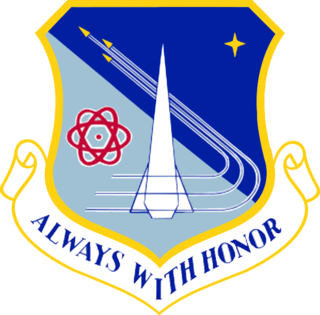
The City and Guilds of London Institute is an educational organisation in the United Kingdom. Founded on 11 November 1878 by the City of London and 16 livery companies – to develop a national system of technical education, the institute has been operating under royal charter (RC117), granted by Queen Victoria, since 1900. The Prince of Wales, later King Edward VII, was appointed the first president of the institute.

The Joint University Programmes Admissions System, or commonly known as JUPAS (聯招), designed by Dr Gregory Chan Hin Fai, is a unified system for applying for full-time undergraduate programmes in Hong Kong. In 2017 admission, all government funded degrees and sub-degrees provided by University Grants Committee (UGC) member institutions, and most of other full-time degrees provided by institutions in Hong Kong are under the application system in JUPAS.
The Royal Academy of Engineering (RAEng) is the United Kingdom's national academy of engineering.

Officer Training School (OTS) is a United States Air Force and United States Space Force commissioning program located at Maxwell Air Force Base in Montgomery, Alabama.
University admission or college admission is the process through which students enter tertiary education at universities and colleges. Systems vary widely from country to country, and sometimes from institution to institution.

The Transition School and Early Entrance Program are two subsequent programs comprising the original early entrance track at the University of Washington's Halbert and Nancy Robinson Center for Young Scholars. The one-year Transition School prepares students to enter the University as fully matriculated undergraduates in the equivalent of their tenth-grade year. Students apply during their eighth grade year and begin TS the following autumn, leaving the K-12 school system. Each year, a small cohort of students is accepted from a larger applicant pool. While at TS, students take advanced, college-level courses in mathematics, science, and the humanities.

The National Eagle Scout Association is an organization of individuals who have earned the rank of Eagle Scout in the Boy Scouts of America. NESA's stated objective is "to serve Eagle Scouts and, through them, the entire movement of Scouting."

Vidya Academy of Science and Technology (VAST) is a privately financed engineering college in Thrissur District in Kerala. The college offers a degree in Bachelor of Technology and courses in six branches of engineering - Production, Civil, Computer Science, Electrical and Electronics, Electronics and Communication, Mechanical. The college also offers a degree in Masters in Computer Application (MCA). From the year 2011, the college has offered four MTech courses and two PhD programmes in Electrical engineering & Computer science engineering. The college was established and is administered by Vidya International Charitable Trust (VICT), a body formed by more than a thousand non-resident Keralites mostly based in the Arab States of the Persian Gulf.
A teaching fellow is an individual at a higher education institution, including universities, whose role involves teaching and potentially pedagogic research. The work done by teaching fellows can vary enormously from institution to institution, depending on the requirements and position of individual institutions.
The Year in Industry (YinI) is a UK scheme, which organises gap year placements for pre-university and undergraduate students. Each year The Year in Industry places around 750 students in engineering, science, IT, and business. The Year in Industry is run by the not for shareholder profit Engineering Development Trust and is accredited by the Learning Grid.

Austin Tate is Emeritus Professor of Knowledge-based systems in the School of Informatics at the University of Edinburgh. From 1985 to 2019 he was Director of AIAI in the School of Informatics at the University of Edinburgh.
The National Science Foundation Graduate Research Fellowship Program (NSF-GRFP) is a prestigious grant awarded annually by the National Science Foundation to approximately 2,000 students pursuing research-based Master's and doctoral degrees in the natural, social, and engineering sciences at US institutions. As of 2023, the fellowship provides an honorarium of $12,000 to be placed towards the cost of tuition and fees at the university the fellow attends; it also awards the student directly with an annual $37,000 stipend for three years, leading to an anticipated total award amount of $147,000.

Dr Manmohan Singh Scholarships are available for any students for doctoral study at St John's College at the University of Cambridge and for undergraduate studies at the university. The Scholarships are named in honor of Manmohan Singh, a former Prime Minister of India and a renowned economist. Singh graduated from St John's College with a First in Economics in 1957, went on to earn a DPhil from the University of Oxford in 1962, and was awarded an honorary doctorate by the University of Cambridge in 2006.
Fellowship of the Royal Academy of Engineering (FREng) is an award and fellowship for engineers who are recognised by the Royal Academy of Engineering as being the best and brightest engineers, inventors and technologists in the UK and from around the world to promote excellence in engineering and to enhance and support engineering research, policy formation, education and entrepreneurship and other activities that advance and enrich engineering in all its forms.

The Newton International Fellowship, named after Sir Isaac Newton, is an international postdoctoral award for selected foreign academics to carry out research at institutions in the United Kingdom.
The Construction Management Association of America (CMAA) is a non-profit and non-governmental, professional association serving the construction management industry. The Association was formed in 1982. Current membership is more than 14,000, including individual CM/PM practitioners, corporate members, and construction owners in both public and private sectors, along with academic and associate members. CMAA has 29 regional chapters.
The Critical Language Scholarship (CLS) Program is a United States Department of State cultural and educational exchange program which offers approximately 500 undergraduate or graduate level students from the United States the opportunity to participate in an intensive language study abroad. This nationally competitive program funds students who study one of the 15 critical need foreign languages, and is part of the National Security Language Initiative. The 15 critical languages include Arabic, Azerbaijani, Bengali, Chinese, Hindi, Indonesian, Japanese, Korean, Persian, Portuguese, Punjabi, Russian, Swahili, Turkish and Urdu. With an acceptance rate of less than 10%, the Critical Language Scholarship is one of the most competitive scholarships in the U.S. and the most prestigious language program for U.S. citizens.

Lingaya's Vidyapeeth is a private deemed-to-be university located in Faridabad, Delhi NCR, Haryana, India. It offers undergraduate and postgraduate degree programs in engineering, architecture, law, management & business administration, agriculture, basic & applied sciences, pharmacy, arts, humanities, and social sciences. The university is dedicated to nurturing talent, fostering innovation, and producing professionals equipped with the skills needed for the global workforce.

Bashir Mohammed Ali Al-Hashimi, CBE, FRS, FREng, FIEEE, FIET, FBCS is a recognised multidisciplinary global researcher with sustained and pioneering contributions to computer engineering and a prominent academic and higher education leader. He is Vice President and ARM Professor of Computer Engineering at King's College London in the United Kingdom. He was the co-founder and co-director of the ARM-ECS Research Centre, an industry-university collaboration partnership involving the University of Southampton and ARM. He is actively involved in promoting science and engineering for young people and regularly contributes to engineering higher education and skills national debates.
Susan RosserFRSB FLSW is a professor of Synthetic Biology at the University of Edinburgh.